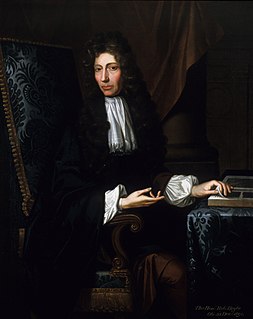A Quote by Francis Bacon
The study of nature with a view to works is engaged in by the mechanic, the mathematician, the physician, the alchemist, and the magician; but by all as things now are with slight endeavour and scanty success.
Related Quotes
The study of Nature is intercourse with the highest mind. You should never trifle with Nature. At her lowest her works are the works of the highest powers, the highest something in the universe, in whichever way we look at it... This is the charm of Study from Nature itself; she brings us back to absolute truth wherever we wander.
I know, indeed, and can conceive of no pursuit so antagonistic to the cultivation of the oratorical faculty ... as the study of Mathematics. An eloquent mathematician must, from the nature of things, ever remain as rare a phenomenon as a talking fish, and it is certain that the more anyone gives himself up to the study of oratorical effect the less will he find himself in a fit state to mathematicize.
I look upon a good physician, not so properly as a servant to nature, as one, that is a counsellor and friendly assistant, who, in his patient's body, furthers those motions and other things, that he judges conducive to the welfare and recovery of it; but as to those, that he perceives likely to be hurtful, either by increasing the disease, or otherwise endangering the patient, he thinks it is his part to oppose or hinder, though nature do manifestly enough seem to endeavour the exercising or carrying on those hurtful motions.
I hold the view that the alchemist’s hope of conjuring out of matter the philosophical gold, or the panacea, or the wonderful stone, was only in part an illusion, an effect of projection; for the rest it corresponded to certain psychic facts that are of great importance in the psychology of the unconscious. As is shown by the texts and their symbolism, the alchemist projected what I have called the process of individuation into the phenomena of chemical change.
I know no study that will take you nearer the way to happiness than the study of nature - and I include in the study of nature not only things and their forces, but also mankind and their ways, and the moulding of the affections and the will into an earnest desire not only to be happy, but to create happiness.
Every individual, from the common mechanic, that works in wood or clay, to the prime minister that regulates with the dash of his pen the agriculture, the breeding of cattle, the mining, or the commerce of a nation, will perform his business the better, the better he understands the nature of things,and the more his understanding is enlightened.
How shall we define occultism? The word is derived from the Latin occultus, hidden; so that it is the study of the hidden laws of nature. Since all the great laws of nature are in fact working in the invisible world far more than in the visible, occultism involves the acceptance of a much wider view of nature than that which is ordinarily taken. The occultist, then, is a man who studies all the laws of nature that he can reach or of which he can hear, and as a result of his study he identifies himself with these laws and devotes his life to the service of evolution.









































